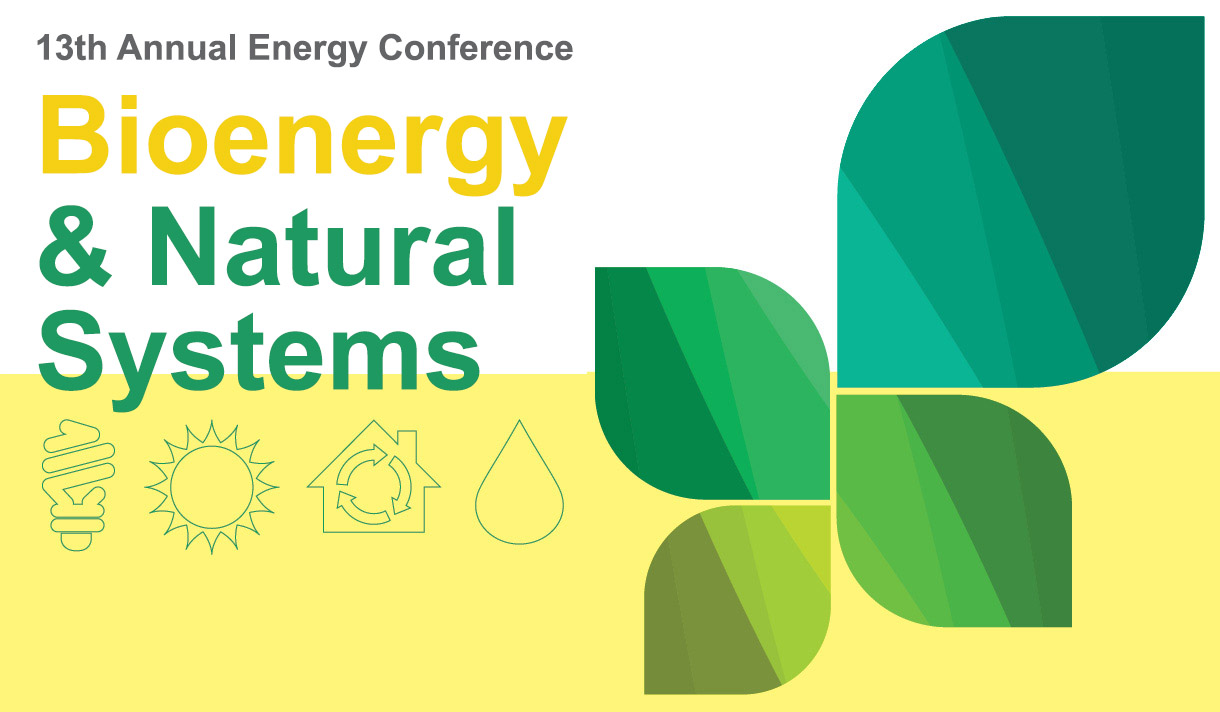
2018: Speaker Profiles

Scott A. Banta, Ph.D.
Professor of Chemical Engineering
Columbia University
Scott Banta received his B.S.E. degree from the University of Maryland, Baltimore County, and his M.S. and Ph.D. degrees from Rutgers University. He completed a postdoctoral fellowship at the Shriners and Massachusetts General Hospitals and Harvard Medical School.
Banta began his faculty career in the Department of Chemical Engineering at Columbia University in 2004, and his research has focused on the engineering of proteins and peptides for various applications in areas including biocatalysis, bioelectrocatalysis, biomaterials, gene and drug delivery, biosensing, and bioenergy. More recently, Banta’sgroup is has been developing new biotechnology platforms for energy harvesting and conversion, including the non-photosynthetic production of biofuels from renewable electricity or mining wastes.
He has more than 85 peer-reviewed publications and several patents; is the past chair and current long-range program coordinator of the Biochemical Technologies (BIOT) division of the American Chemical Society, an associate editor of the Biochemical Engineering Journal, and a fellow of the American Institute for Medical and Biological Engineering. Banta is also the co-founder of Ironic Chemicals, LLC, which is developing biotechnology solutions for the mining industry.
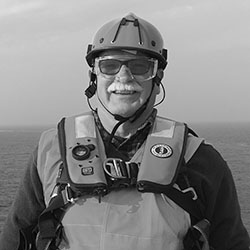
David Beutel
Aquaculture Coordinator
Rhode Island Coastal Resources Management Council
David Beutel has worked with the fishing industry since the late 1970s as a commercial fishermen and fishing gear manufacturer. He worked for Rhode Island Sea Grant at University of Rhode Island in fisheries and aquaculture outreach, and fishing gear research for 17 years. The research work concentrated on projects that modified fishing gear to reduce bycatch. He was part of the team that developed the “Eliminator” trawl, which received the World Wildlife Fund Smart Gear award in 2007. Beutel has also developed educational programs on fishing techniques, fisheries issues, aquaculture, and seafood choices for the industry and the public.
Currently, Beutel is working with the Rhode Island Coastal Resources Management Council as the Aquaculture and Fisheries Coordinator. As aquaculture coordinator, he works to facilitate the regulation and development of aquaculture in Rhode Island. Another of his primary efforts has been helping to develop the fisheries aspects of marine spatial planning through the work on the Rhode Island Ocean Special Area Management Plan. He continues to be involved in the review of offshore renewable energy projects and their effects on fisheries.

Shishir Chundawat, Ph.D.
Assistant Professor, Chemical and Biochemical Engineering
Rutgers University
Shishir Chundawat received his Ph.D. in Chemical Engineering from Michigan State University in 2009. He held a joint position as an assistant scientist at the University of Wisconsin-Madison (Department of Biochemistry) and as an adjunct/research assistant professor at the Department of Chemical Engineering & Materials Science at Michigan State University for several years before joining Rutgers University in January 2015.
The Glycan Engineering Laboratory (GEL) led by Chundawat at Rutgers University takes a carbohydrate or “glycan-centric” approach to sustainably address relevant problems in the areas of bioenergy, biomedical, biomaterials, and bioseparations engineering. Chundawat has 13+ years of multidisciplinary expertise working with carbohydrate-active enzymes (CAZymes); protein modeling, engineering, expression (using E. coli, yeast and cell free wheat germ-based expression systems), purification, and characterization; carbohydrate chemistry and their processing; and developing novel analytical techniques for characterization of glycans and protein/CAZymes-glycan interactions.
GEL is actively working toward expanding the repertoire of applications for carbohydrate-active enzymes in the area of biomanufacturing and human health, in particular. GEL research is currently organized into three areas: 1) glycosyl hydrolase enzyme engineering and lignocellulosic biomass bioprocessing to enable low-cost biofuels production; 2) understanding protein-glycan binding interactions using complementary bulk ensemble and single-molecule based analytical techniques; and 3) developing chemoenzymatic pathways for synthesis of glycans and glycoconjugates to facilitate production of designer biologics and biomaterials.
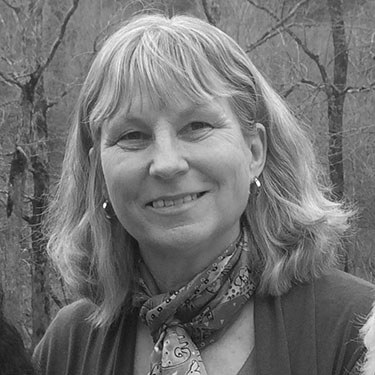
Virginia H. Dale, Ph.D.
Adjunct Professor, Department of Ecology and Evolutionary Biology
University of Tennessee-Knoxville
Virginia Dale recently retired from a Corporate Fellow position at Oak Ridge National Laboratories’ (ORNL) Environmental Sciences Division. She has authored 10 books and more than 250 published articles; has served on national scientific advisory boards for five agencies of the United States and several committees of the National Academies of Science; and was among the members of the international science community who contributed to the Intergovernmental Panel on Climate Change Scientific Assessment that in 2007 received with Al Gore the Nobel Peace Prize.
Dale was the 2006 Distinguished Scientist for ORNL, a YWCA of Knoxville Tribute to Women Finalist in 2006, an distinguished alumnae of her high school in 2004, and a Top Citizen of Oak Ridge in 1999. Her interests include sustainability and ecosystem management in the context of large disturbances and climate change. She received her Ph.D. in mathematical ecology from the University of Washington and a B.A. and M.S. in mathematics from University of Tennessee-Knoxville.
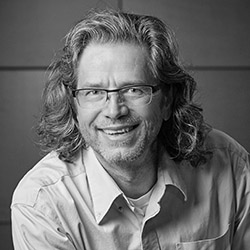
Keith L. Kline
Distinguished Research Staff, Environmental Sciences Division
Oak Ridge National Laboratory
Keith Kline supports research on international development issues associated with energy and land management. Since 2008, he has worked in the Environmental Sciences Division at the Oak Ridge National Laboratory (ORNL) and holds a joint faculty position at the University of Tennessee’s Bredesen Center for Interdisciplinary Research and Graduate Education. Between 1980 and 2008, Keith lived and worked in developing nations supporting rural development programs to improve land management for agriculture and ecosystem services. His current research supports the Department of Energy to assess national and international effects associated with the development of domestic renewable energy resources. Kline’s special interests include land-use change and involving stakeholders in developing plans to integrate and adapt renewable energy technologies into more sustainable production systems

Dr. Irakli Loladze
Associate Professor
Bryan College of Health Sciences
After obtaining his M.A. and Ph.D. in mathematics at Arizona State University, Irakli Loladze attended Princeton University for a postdoctoral work in ecology. There, in 2002, he hypothesized that rising levels of atmospheric carbon dioxide (CO2) could impact the quality of human nutrition by lowering the levels of essential minerals (e.g., calcium, magnesium, iodine, iron, and zinc) in most crops and wild plants globally. However, small-scale studies of crops grown under elevated CO2 failed to detect consistent declines of minerals. Loladze’s multiple grant proposals for large-scale studies were all rejected. This left him with published data to rely on for testing his hypothesis. After more than a decade of data gathering, he compiled a dataset sufficiently large for detecting the shift in the quality of plants. His meta-analysis, published in 2014 in eLife, revealed a pervasive and systemic downshift in the concentrations of minerals in 125 plant varieties grown on four continents under elevated CO2. Loladze’s research influenced the U.S. policy and was covered by New Scientist, Nature, Science, Politico, and other media outlets. He is currently researching the impact of rising CO2 on phytonutrients in plants and the impact of such changes on human nutrition.
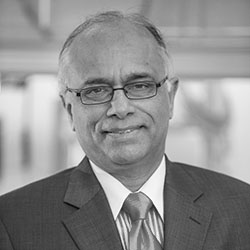
Devinder Mahajan, Ph.D.
Director, Institute of Gas Innovation and Technology;
Professor, Chemical and Molecular Engineering
Stony Brook University
Devinder Mahajan’s research includes monitoring energy policies and development of low-carbon technologies to address sustainability and climate change issues. He has published more than 287 papers, delivered more than 110 lectures, edited eight special journal volumes, and holds 15 patents. Mahajan’s awards include: New Energy Development Organization Fellow, Japan (1997); 1997 Annual Energy Conservation Center lecture on “Catalysis and Environment,” Japan; keynote speaker, International Oil Consortium Meeting, Milan, Italy (1999); Outstanding Mentor Award, Office of Science, U.S. Department of Energy (2008, 2010); University Visiting Professor, Government of Italy Fellowship, Universitá di Roma “La Sapienza”, Italy (2008); Visiting Researcher, Institute for Global Strategies (IGES), Hayama, Japan (2009); Fulbright Specialist Scholar (Thailand, 2010; Kenya 2014); Certificate of Recognition, Bureau of Energy Resources, U.S. Department of State (2012); Marie Curie Senior Researcher (2013-16) under the nine-country consortium led by UPM, Madrid and funded by the European Commission; participant, expert group meeting for Science & Sustainable Goals - Reports to 30-Member Countries Open Working Group (Rio+20) of the General Assembly, United Nations (2013); Innovation Achievement Award, Brookhaven National Laboratory (2014); Invitee, Opening Ceremony, International Year of Light: A UN Initiative. UNESCO, Paris, France; high-end foreign expert, energy and environment, Tongji University, China (2015- 2017).
Mahajan received his Ph.D. from the University of British Columbia, Canada, and completed his post-doctoral training at Brookhaven National Laboratory (BNL). He joined the staff at BNL in 1983 and moved to Stony Brook University in 2002 and concurrently held a joint scientific staff appointment with BNL until 2015. For more information, view his curriculum vitae.
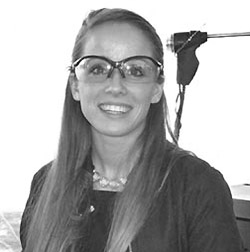
Rebecca Trojanowski
Staff Engineer, Energy Conversion Group
Brookhaven National Laboratory
Rebecca Trojanowski received her B.S. in Chemical Engineering and M.S. in Mechanical Engineering from Worcester Polytechnic Institute. She is currently working toward her Eng.Sc.D at Columbia University in Earth and Environmental Engineering. Trojanowski’s interests focus primarily on technical solutions to advance building energy systems, fossil fuel reduction, and emissions. Some of her research and development areas include advanced HVAC concepts, biofuels, solid fuels, air pollution, combustion, and system concepts.
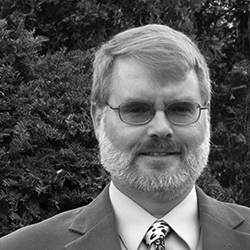
Timothy Volk
Senior Research Associate
Forest and Natural Resources Management
SUNY College of Environmental Science and Forestry
Timothy Volk has more than 25 years of experience working in the fields of forestry, agroforestry, short-rotation woody crops, bioenergy, and phytoremediation in the northeastern United States and West Africa. In his current position at the State University of New York’s College of Environmental Science and Forestry (SUNY ESF), he is responsible for research projects focused on the development of shrub willow biomass cropping systems as a feedstock for bioproducts and bioenergy. Alternative uses of willow for phytoremediation, living snow fences, wastewater management, and nutrient and riparian buffers are other issues he is currently exploring. Volk is also actively involved in research and development of harvesting systems for short rotation woody crops and sustainability assessments of bioenergy systems, including lifecycle assessments of willow biomass crops and woody biomass from forests. In addition he works with landowners to support the expansion of short rotation woody crops in the northeast U.S. and assists companies and government agencies determine the availability of woody biomass from forests and short rotation woody crops.